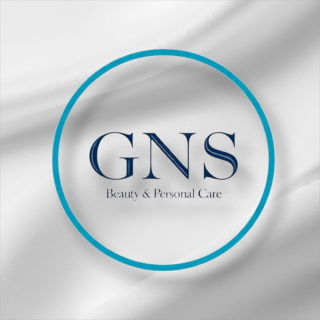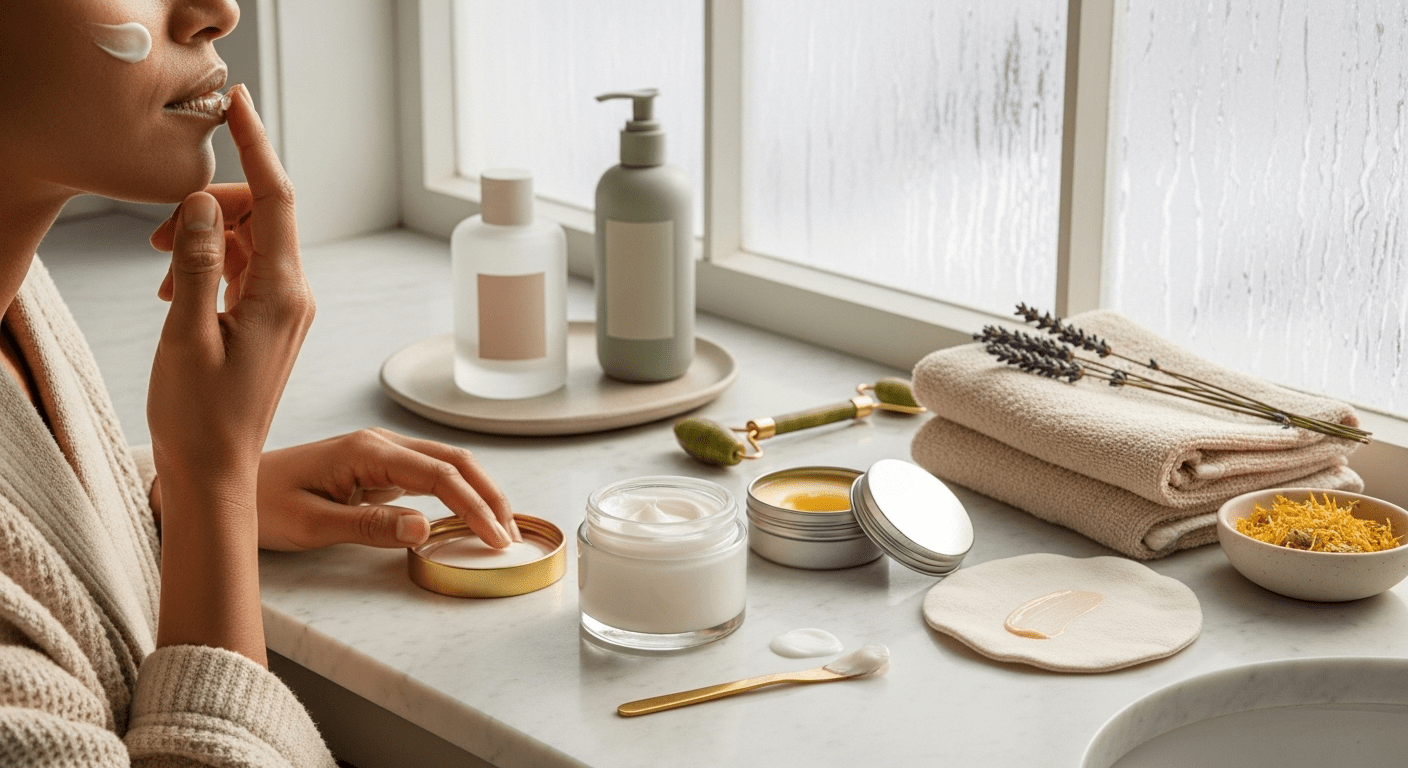Every hard workout puts your muscles to the test, but your skin works just as hard to recover while you sleep. Over 70 percent of skin regeneration takes place at night, making restful sleep a secret weapon for healthy, glowing skin. Understanding how exercise, rest, and skincare routines work together helps you harness the body’s natural repair processes. By learning what really matters for skin recovery, you set yourself up for resilience, radiance, and lasting results.
Table of Contents
- Sleep And Skin Recovery Explained
- How Tough Workouts Affect Skin
- Role Of Sleep In Skin Repair
- Optimal Post-Workout Skincare Routines
- Common Mistakes And Prevention Tips
Key Takeaways
| Point | Details |
|---|---|
| Sleep is Crucial for Skin Health | Quality sleep (7-9 hours) enhances skin regeneration, including collagen production and cellular repair. |
| Post-Workout Skincare is Essential | Immediate cleansing after exercise prevents clogged pores and skin irritation, maintaining skin health. |
| Exercise Impacts Skin Condition | Intense workouts can elevate inflammation and sweat production, which may exacerbate skin issues without proper care. |
| Common Skincare Mistakes | Neglecting to cleanse post-exercise and exercising with makeup can hinder skin recovery and create breakouts. |
Sleep and Skin Recovery Explained
Your post-workout recovery isn’t just about muscle repair—it’s a critical process for skin health. Skin regeneration happens predominantly during sleep, making your nighttime rest a powerhouse for cellular restoration. According to PubMed, physical activity enhances skin health by improving blood circulation, reducing stress, and promoting better sleep patterns that directly contribute to skin cell repair.
When you exercise, your body triggers multiple physiological responses that impact skin recovery. Blood flow increases, delivering essential nutrients and oxygen to skin cells while simultaneously flushing out metabolic waste products. This enhanced circulation helps accelerate the natural healing processes, reducing inflammation and supporting collagen production. American Academy of Dermatology confirms that regular exercise can lead to improved sleep quality, which further supports the body’s intrinsic skin repair mechanisms.
The sleep-skin connection is remarkably sophisticated. During deep sleep stages, your body releases growth hormones that stimulate tissue repair and regeneration. This means those hours of rest are when your skin works hardest to heal microdamage from workouts, environmental stressors, and daily wear. Key recovery processes include:
- Cellular protein synthesis
- Collagen restoration
- Reducing oxidative stress
- Balancing skin hydration levels
- Regulating inflammatory responses
To maximize these benefits, aim for 7-9 hours of quality sleep, create a consistent sleep schedule, and establish a relaxing pre-bed routine that helps your body transition into deep, restorative rest. Your skin will thank you with improved texture, resilience, and a natural, healthy glow.
How Tough Workouts Affect Skin
Tough workouts aren’t just a test of physical endurance—they’re a significant challenge for your skin’s health and balance. Journal of Dermatology Sciences reveals that high-intensity training can temporarily increase inflammatory markers, potentially triggering skin irritation and exacerbating conditions like acne or eczema. Skin stress during intense exercise goes far beyond surface-level concerns.
Excessive sweating is a primary culprit in workout-related skin issues. According to the American Academy of Dermatology, intense workouts can cause profuse perspiration that may clog pores and lead to breakouts if proper skincare measures aren’t implemented. This sweat-induced skin challenge occurs because exercise dramatically increases sebum production and skin temperature, creating an ideal environment for bacterial growth and potential inflammation.
The physiological impact of tough workouts on skin involves multiple complex mechanisms:
- Increased blood circulation
- Enhanced metabolic waste elimination
- Temporary hormonal fluctuations
- Elevated skin surface temperature
- Accelerated cellular turnover
To mitigate these potential negative effects, strategic pre and post-workout skincare becomes crucial. This includes thorough cleansing, using non-comedogenic products, wearing breathable workout clothing, and maintaining proper hydration. For those with sensitive skin and exercise concerns, understanding these physiological responses can help develop a more targeted skincare approach that supports rather than compromises skin health during intense physical activities.
While tough workouts pose challenges, they’re not inherently harmful when approached with mindful skincare. By understanding your skin’s responses and implementing protective strategies, you can enjoy the numerous health benefits of intense exercise without compromising your skin’s natural balance and radiance.
Role of Sleep in Skin Repair
Sleep regeneration is the unsung hero of skin health, transforming your body’s repair mechanisms during those crucial nighttime hours. PubMed highlights the critical role of adequate sleep in skin restoration, revealing that increased production of human growth hormone during rest aids in comprehensive skin cell regeneration and overall skin vitality. This nightly biological process is far more sophisticated than simply closing your eyes.
During deep sleep stages, your skin undergoes remarkable transformation. Cellular repair mechanisms activate, working to counteract daily damage from environmental stressors, workout-induced inflammation, and metabolic processes. The American Academy of Dermatology confirms that improved sleep quality supports skin health by reducing stress and providing essential recovery time for your body’s largest organ.
Key processes occurring during optimal sleep include:
- Collagen protein synthesis
- Cellular waste removal
- Hormonal rebalancing
- Inflammation reduction
- Antioxidant regeneration
To maximize these critical repair processes, focus on creating an optimal sleep environment. This means maintaining a consistent sleep schedule, reducing blue light exposure before bedtime, keeping your bedroom cool and dark, and aiming for 7-9 hours of uninterrupted rest. Your skin doesn’t just passively recover—it actively rebuilds and rejuvenates, turning sleep into a powerful natural skincare treatment that no expensive cream can replicate.
Think of sleep as your body’s most sophisticated repair workshop. While you rest, intricate biological processes work tirelessly, healing microscopic damage, regenerating cells, and preparing your skin to face another day with resilience and radiance. Quality sleep isn’t a luxury—it’s a fundamental pillar of holistic skin health.
Optimal Post-Workout Skincare Routines
Your post-workout skincare isn’t just a luxury—it’s a critical defense against potential skin damage and breakouts. American Academy of Dermatology emphasizes the importance of a strategic post-exercise skincare routine, highlighting the need to cleanse the skin thoroughly to remove sweat and bacteria, apply a hydrating moisturizer, and protect against UV damage if heading outdoors. Immediate skin recovery begins the moment you step off the workout floor.
The first critical step is swift cleansing. According to Time Magazine, avoiding makeup during workouts prevents pore blockage, and immediate post-exercise cleansing is crucial for removing sweat, bacteria, and potential impurities that can lead to breakouts. Your skin needs a gentle yet effective approach that respects its natural balance while clearing away workout-induced debris.
An optimal post-workout skincare routine should include:
- Immediate gentle cleansing
- Alcohol-free toning
- Hydrating, lightweight moisturizer
- Broad-spectrum sunscreen (if heading outdoors)
- Cooling or calming treatments for inflammation
For those looking to elevate their post-workout skincare, consider incorporating specialized skincare routines tailored to different lifestyle needs. The key is understanding your skin’s unique response to exercise and creating a personalized approach that supports recovery, hydration, and long-term skin health.
Remember, your post-workout skincare isn’t just about looking good—it’s about maintaining your skin’s resilience, preventing potential damage, and supporting its natural healing processes. Treat your skin like the powerful, adaptive organ it is, and it will reward you with a healthy, radiant glow that reflects your commitment to fitness and self-care.

Common Mistakes and Prevention Tips
Skincare sabotage happens more often than you might think, especially in the high-intensity world of fitness and exercise. American Academy of Dermatology warns that one of the most common post-workout mistakes is neglecting to cleanse the skin promptly, which can lead to clogged pores and potential breakouts. Understanding these pitfalls is the first step toward maintaining healthy, resilient skin.
According to Time Magazine, wearing makeup during exercise is another significant error that can block pores and impede natural sweat evaporation. The consequences extend beyond temporary discomfort—prolonged makeup wear during workouts can create an environment ripe for bacterial growth and potential skin irritation.
Common workout-related skincare mistakes include:
- Exercising with makeup on
- Delaying post-workout cleansing
- Using harsh, stripping cleansers
- Skipping moisturizer after sweating
- Wearing tight, non-breathable workout clothing
- Touching face with gym equipment-contaminated hands
Prevention strategies are straightforward but require consistent implementation. For those seeking more comprehensive guidance, exploring specialized skincare routines can provide personalized insights into managing your unique skin challenges. The key is creating a proactive approach that respects your skin’s natural balance while supporting your fitness goals.
![]()
Remember, your skin is an intelligent, responsive organ. Treating it with mindfulness, using gentle products, and understanding its specific needs during and after exercise will transform potential mistakes into opportunities for healthier, more radiant skin.
Recharge Your Skin and Body with the Right Care
After a tough workout, your skin needs more than just rest. It requires targeted care that supports the natural repair processes detailed in the article like collagen synthesis and inflammation reduction. Skipping these steps leaves your skin vulnerable to irritation, clogged pores, and delayed recovery. You deserve skincare solutions designed to complement your active lifestyle and maximize the benefits of sleep and post-exercise recovery.

Discover premium, eco-conscious products at GNS Beauty & Personal Care that nourish your skin from workout to rest. From gentle cleansers ideal for post-exercise detox to hydrating moisturizers that replenish and protect, our curated selection helps you avoid common pitfalls like makeup during workouts and delayed cleansing. Take control of your skin’s resilience today. Explore personalized routines and elevate your self-care by visiting GNS Beauty’s collection. Act now, because every workout deserves a skincare routine that restores and renews.
Frequently Asked Questions
How does sleep affect skin recovery after workouts?
Sleep is essential for skin recovery as it enhances cellular regeneration, collagen restoration, and reduces inflammation. During deep sleep, your body releases growth hormones that aid in repairing skin damage caused by workouts and environmental stressors.
What skincare routine should I follow after a workout?
An optimal post-workout skincare routine includes immediate gentle cleansing, applying an alcohol-free toner, using a lightweight moisturizer, and applying broad-spectrum sunscreen if heading outdoors. Calming treatments can also help reduce inflammation.
What are common skincare mistakes after exercise?
Common mistakes include exercising with makeup on, delaying post-workout cleansing, using harsh cleansers, skipping moisturizer, wearing tight clothing, and touching the face with unwashed hands. These can lead to clogged pores and skin irritation.
How much sleep is recommended for optimal skin recovery?
To maximize skin recovery, it is recommended to aim for 7-9 hours of quality sleep each night. Consistent sleep schedules and a relaxing bedtime routine can significantly impact your skin’s health and recovery processes.








Hinterlasse einen Kommentar
Alle Kommentare werden vor der Veröffentlichung geprüft.
Diese Website ist durch hCaptcha geschützt und es gelten die allgemeinen Geschäftsbedingungen und Datenschutzbestimmungen von hCaptcha.